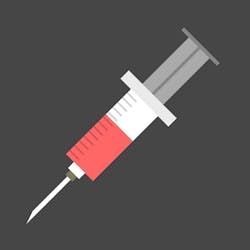UNICEF and the World Health Organization (WHO) issued a call to action to avert major measles and polio epidemics as COVID-19 continues to disrupt immunization services worldwide, leaving millions of vulnerable children at heightened risk of preventable childhood diseases, according to a press release from the WHO.
The two organizations estimate that $655 million ($400 million for polio and $255 million for measles) is needed to address dangerous immunity gaps in non-Gavi eligible countries and target age groups.
In recent years, there has been a global resurgence of measles with ongoing outbreaks in all parts of the world, the WHO said. Vaccination coverage gaps have been further exacerbated in 2020 by COVID-19. In 2019, measles climbed to the highest number of new infections in more than two decades. Annual measles mortality data for 2019 to be released next week will show the continued negative toll that sustained outbreaks are having in many countries around the world, the WHO added.
At the same time, poliovirus transmission is expected to increase in Pakistan and Afghanistan and in many under-immunized areas of Africa. Failure to eradicate polio now would lead to global resurgence of the disease, resulting in as many as 200,000 new cases annually, within 10 years.
New tools, including a next-generation novel oral polio vaccine and the forthcoming Measles Outbreak Strategic Response Plan, are expected to be deployed over the coming months to help tackle these growing threats in a more effective and sustainable manner, the WHO said save lives.

